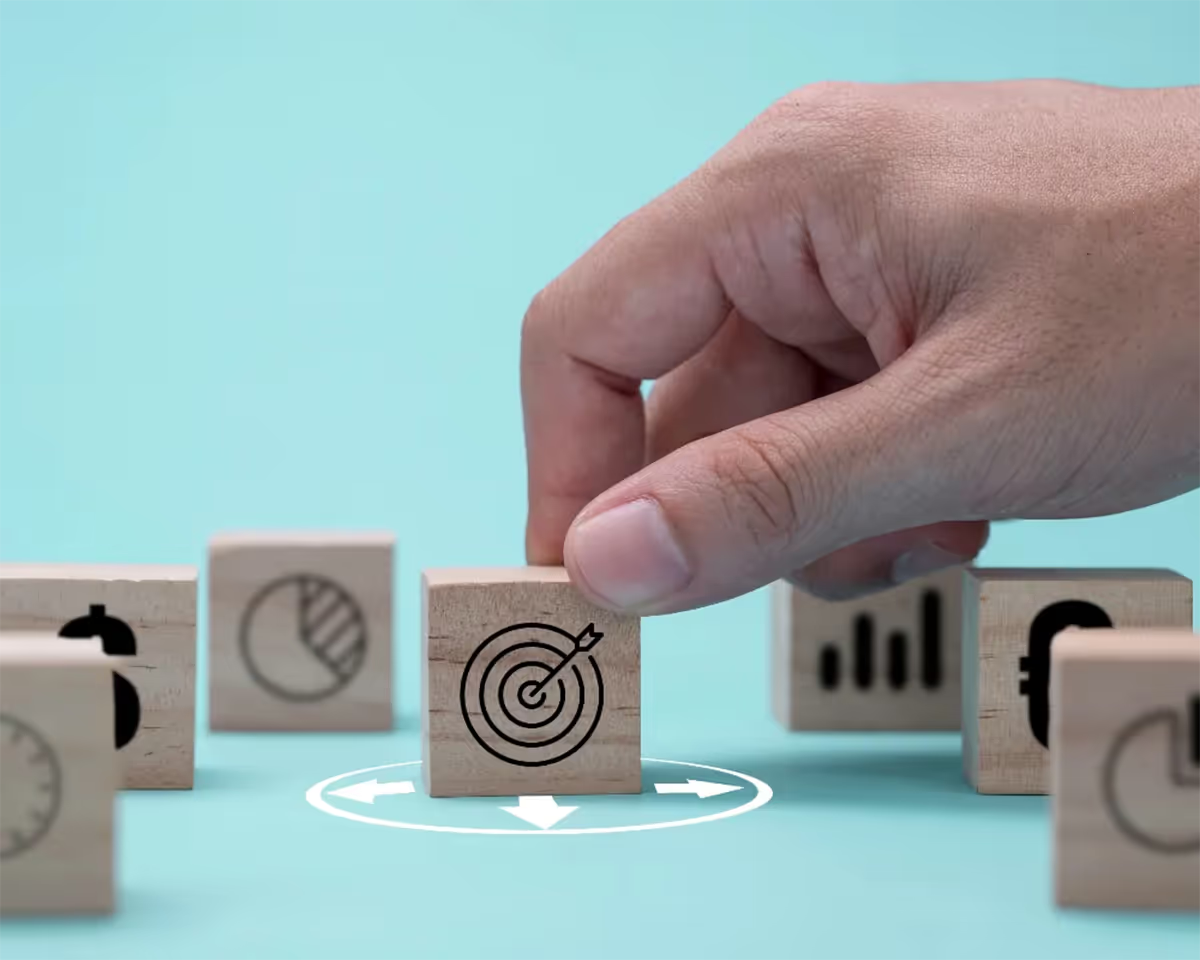Ready to create more pipeline?
Get a demo and discover why thousands of SDR and Sales teams trust LeadIQ to help them build pipeline confidently.



In the modern world of B2B sales, sales development reps need to master personalized outreach, social selling, and the use of video to effectively engage prospects and build relationships.

High-performing SDRs continuously update their skills, including hard skills like creating personalized videos and soft skills like active listening and empathy, to better understand and respond to prospect needs and objections.

One of the most important skills for SDRs is knowing when to pivot strategies, including recognizing when to walk away from unfruitful engagements while maintaining professionalism to potentially re-engage in the future.
Get a demo and discover why thousands of SDR and Sales teams trust LeadIQ to help them build pipeline confidently.
Whether you’re a seasoned Sales Development Representative (SDR) or are just starting out, the nature of the job means there’s always room for improvement.
The standard process for SDRs of sending out sequenced emails, calling, and leaving voicemails is no longer working as well as it once was. There are too many distractions, too many other priorities, and prospects are busier than ever.
To help combat the struggles SDRs face, we’ve laid out the groundwork for success by compiling ten skills all SDRs should master to get the best results possible in their role.
The role of a Sales Development Representative is not easy.
The position requires an assertive, proactive mentality, with plenty of hard work and dedication to succeed. While it’s understandable that the role’s demands will cause many SDR to experience discouragement at some point, dwelling in a negative headspace will only thwart progress.
Overcoming setbacks is possible by adopting the mindset of a high-performing SDR. So, how do you enter that mental space?
Low-performing SDRs are prone to adopting a defeatist mindset. This mental block is unfortunately experienced by many SDRs at some point.
The logic behind this mindset is simple. SDRs typically reach out to high-level decision-makers: the C-Suite and VPs, or at least director-level executives. These are people who often have decades of experience in their field, certifications, awards, accolades. They've been there and done that. Their high-performing background and industry expertise can intimidate SDRs, especially if they are inexperienced.
In order to pivot from a low-performing mindset to a high-performing one, SDRs must view the prospect and themselves as equals. This is the primary factor that separates high-performing SDRs from low-performing ones.
The three most important qualities for embracing a high-performing mindset as an SDR include:
Once you start working on these three qualities, you can bolster them with other SDR skills that complement this new approach. Below we will dive into ten additional SDR skills beyond working on your mindset that will help even the most seasoned sales reps achieve more with less stress.
As we said - being an SDR can be a grind. It's often the first sales job someone gets and can either make or break their sales career. Having a good mindset about the role is the most important SDR skill - but there are others you will need to learn and master in order to have long-term success.
The top sales development representative skills to succeed in 2025 and beyond include:
We're going to dive in deeper to both the soft and hard skills for sales representatives need in order to succeed in the changing sales environment teams are facing today.
The most valuable prospects get dozens of cold emails every week.
Unless you give them a good reason to read your email, it’s likely to go unseen and unread. Personalization is key to getting sales leaders to read your cold email or respond to that cold email.
If you're still using someone's alma mater as "personalization" - we're sorry but that isn't personalization... it's lazy. The best sales professionals use personalization throughout the sales process - and that's why it is one of the most important sales development skills you can learn.
The best personalized prospecting starts with understanding the prospective company, the person's role within that company, their personality, and their potential needs. While you should do the research yourself, there are AI sales tools that can help and LeadIQ's Scribe can help draft a personalized email with ease.
One of the most revolutionary changes we’ve seen in the sales world is in the power of social selling. According to LinkedIn, salespeople are 51% more likely to hit quota with social selling. In the simplest terms, social selling is a lead-generation technique where salespeople directly interact with their prospects on social media platforms like LinkedIn.
How do you tackle social selling as a sales rep? It’s all about using your social network to build a community of prospects, build relationships with those prospects, and ultimately turn those prospects into customers.
Here are five social selling best practices:
Whether your company is already using social selling or its an experiment you want to try out, its a sales skill that can have a big impact on the rest of your career if you learn how to do it right!
If you’re not yet using sales videos in your prospecting, what are you waiting for?
Personalized sales videos allow prospects to immediately connect with you on a more personable level. While it can feel awkward at first, its a hard skill for sales reps that should be mastered - especially in the increasingly digital sales environment.
4 video best practices for SDRs:
Whether social selling, using personalization, or using video, developing these prospecting skills will come in handy no matter what.
Did you think your sales training stopped after you were successfully onboarded?
That’s not the mindset of a high-performing sales rep….
Successful SDRs continue learning and researching throughout their career. You can do this in many ways.
Here are few ways to engage in sales development representative training:
There are many tools that can help evaluate the performance of SDRs - which may or may not already be a part of the existing sales tech stack you're using.
Make sure you're also being proactive with your management team and asking for additional sales training - such as requesting a budget to take a course on Udemy or attending a relevant conference.
You can either develop sales skills the hard way or the easy way - and learning from others and engaging in official sales training can accelerate your success!
One of the most important skills every company looks for when looking at SDR candidates is coachability. The best SDRs proactively seek out coaching from high-performing peers and ask for honest feedback from their managers and teammates.
Being able to take feedback is a skill - and it can often feel uncomfortable at first. We all have a tendency to want to defend ourselves or the actions we took. Real sales coachability is being able to let go of your ego and put yourself in the prospect's shoes and understand what insights your manager might have to offer.
Being organized is vital skill for sales reps - but it is often overlooked. Schedule management allows SDRs to organize their days and prioritize high-value activities (e.g., email outreach, cold calls, meetings, etc.). Whether you choose to-do lists or use a calendar management tool to create aschedule, maintaining a strict schedule will help SDRs complete their tasks.
Organization as a sales rep skill also involves ensuring that the CRM is updated, that all prospect connections are logged, and that you're constantly finding ways to reduce manual tasks that take up your time. You never want your manager chasing you down because you lack organization!
Great SDRs build genuine relationships and build trust with prospects.
To be a successful relationship builder, you must be able to communicate with a wide variety of people across multiple channels. Whether you are connecting with a CEO over email, presenting to a prospect in a virtual meeting, or sending them a pre-recorded video, you’ll want to clearly communicate in the ways they prefer.
While sales is about closing deals, any seasoned sales professional will tell you that it really is all about relationships. If someone doesn't know you or, more importantly, trust you, why would they buy from you?
One way to develop this SDR skill is to engage in social selling, attend local networking events, and join communities for sales professionals or for the industry your business is in to gain a better understanding.
Active listening is arguably one of the most essential skills for sales professionals/
It's also the one most sales professionals struggle with. Just reflect on a time where you were buying something - whether a new pair of paints or a present for someone... how did the sales rep make you feel? Did they push a product that they'd get a better commission on or did they take the time to understand your desires and needs?
SDRs must be able to qualify prospects during conversations to understand if your product or service can solve their problems. Simply going through a qualification checklist is not enough—an SDR must hone in on the conversation to identify additional key information that you would only get from actively listening to a prospect’s phrases, words, or tone of voice.
To develop this skill, we suggest engaging in more conversations when you yourself are buying something. Rather than picking out whatever you know you need, ask a sales rep at the store for help. What questions do they ask? Did you feel taken care of or pushed off as your purchase wasn't big enough?
By engaging in buying, you can also become a better seller by seeing how others use active listening in the sales process!
Emotional intelligence helps sales reps understand their prospects' objections and can help them better understand their pain points. SDRs must possess strong empathy and emotional intelligence to succeed.
Empathy helps SDRs understand prospects' reactions to your company's products or services, and if the product/service will be a good fit for them without forcing an unnecessary relationship. They will pick up the subtle cues that prospects are giving through either their email responses, tone of voice, or facial and body language.
There will come times when a prospecting endeavor comes to a dead end. That's why one of the most important SDR skills (and prospecting skill) is knowing when to walk away from a deal - especially if they've stopped responding.
The reasons may number several: the timing may not be right, the prospect is already working with a competitor, or they just can't justify your product/service at the moment.
No matter the reason for a lost deal, it is important to maintain integrity until the very end. You never know what might happen down the road, so don’t burn bridges. Keeping a relationship with these contacts may help you later. Even if nothing ever comes of that relationship, don’t risk your company's reputation just because the timing wasn’t right.
We know that being an SDR is a high-energy job that encounters many setbacks on the path to a clear win. Whether you're trying to develop hard skills for sales or improve your soft prospecting skills - remaining positive is crucial.
With the right mindset, sdr training, and skills, it’s more than possible for every SDR to succeed. If you're looking to develop a specific SDR skill mentioned above, talk to your manager and give them a few ways you think you could build up this specific muscle. They'll be more than happy you took a proactive approach to your own success!
Beyond having the skills to be the best SDR, you also need the right tools. LeadIQ offers a free Chrome Extension you can try out to gain contact data for potential prospects and the company info you need for better personalization.